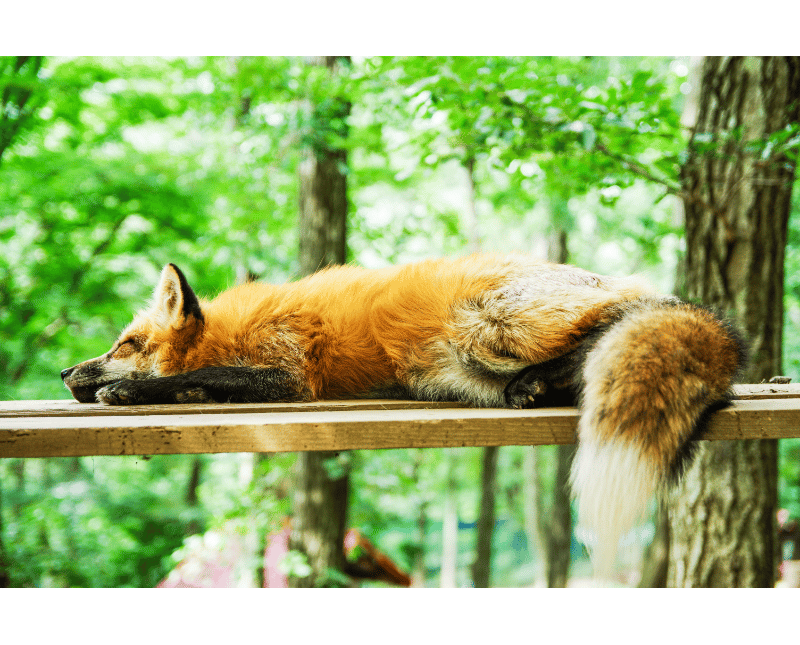The Unseen Victims: Animal Sleep Disorders Linked to Human Sleep Woes
Delving into the intricacies of our modern world, this opinion piece explores the overlooked consequence of human sleep disorders on the animal kingdom. Shedding light on the interconnectedness of ecosystems, it advocates for a collective awareness and action to mitigate the impact of urbanization, noise, and artificial light on the sleep health of both humans and the creatures that share our habitats.
Health and Growth Desk
12/6/20233 min read


In the bustling and ever-evolving landscape of human progress, we often find ourselves inadvertently impacting the world around us. While the consequences of our actions on the environment are well-documented, there is a silent and overlooked casualty emerging from our modern, sleep-deprived society - animals are suffering from sleep disorders directly influenced by our own.
Humans and animals share an intricate web of interconnected ecosystems, and as we disturb the delicate balance of nature, the repercussions extend beyond what meets the eye. Recent studies have shed light on a phenomenon that might seem surprising at first: the rising occurrence of sleep disorders in animals, directly linked to the sleep woes of their human counterparts.
It is well-established that our modern lifestyle, characterized by hectic schedules, constant connectivity, and exposure to artificial light, has led to a global surge in human sleep disorders. From insomnia to sleep apnea, our restless nights are becoming increasingly commonplace. What we fail to recognize, however, is the ripple effect these disorders create in the animal kingdom.
Context:
New research reveals that even tropical mammals within protected areas face the repercussions of human activities beyond their confines. The decade-long study, encompassing 16 protected areas across various biogeographic locations worldwide, identified anthropogenic stressors such as habitat fragmentation and human population density affecting 159 mammal species. The study, conducted by researchers from the Norwegian University of Life Sciences, Rice University (United States), and Wageningen University & Research (Netherlands), was published in the journal Nature Ecology and Evolution on June 26, 2023.
The Disruption Caused by Irregular Sleep Patterns on Human Cognitive Functioning
In a recent study, irregular sleep patterns, termed "sleep variability," have been linked to a decline in cognitive skills among older individuals. The research, the first of its kind, revealed that maintaining consistent sleep habits is crucial for optimizing long-term brain health in aging populations. While previous studies established a connection between insufficient sleep and cognitive problems, this analysis added the dimension of sleep variability, emphasizing the importance of stable and regular sleep routines over an extended period. The study, published in JAMA Network Open, involved over two decades of self-reported sleep data from 826 older participants, indicating that fluctuating sleep patterns may contribute to a threefold increase in the risk of cognitive decline. However, the researchers acknowledged the reliance on self-reported sleep data and the potential influence of various factors such as health conditions and lifestyle changes on the study results.
Animals, especially those living near human-dominated areas, are exposed to the same disruptions that plague our sleep. Urbanization, noise pollution, and artificial lighting are pervasive elements of the modern landscape, infiltrating the habitats of countless species. These factors not only disturb the natural circadian rhythms of animals but can also lead to direct sleep disturbances, mirroring the challenges faced by their human counterparts.
Take, for instance, the nocturnal creatures whose lives are intricately tied to the darkness of the night. Bats, owls, and other nighttime hunters depend on a quiet and dimly lit environment to carry out their natural activities. With the encroachment of city lights and the constant hum of urban life, these animals are finding it increasingly difficult to maintain a healthy sleep pattern. As a result, we witness a decline in their cognitive abilities, weakened immune systems, and altered behavioral patterns – all reminiscent of human sleep disorders.
Similarly, diurnal animals are not exempt from the repercussions of human sleep disturbances. Birds, for example, rely heavily on the rising and setting of the sun to regulate their internal clocks. Artificial lights that pervade the night sky confuse their instincts, leading to disrupted sleep patterns and consequential impacts on their overall well-being.
To address this interconnected crisis, we must recognize the symbiotic relationship between human and animal sleep health. As we strive to improve our sleep hygiene – adopting practices such as reducing screen time before bed, creating dark and quiet sleeping environments, and prioritizing rest – we inadvertently contribute to the well-being of our fellow inhabitants on this planet.
Conservation efforts must extend beyond traditional boundaries to encompass the holistic health of ecosystems, acknowledging the far-reaching consequences of our actions. This involves reevaluating urban planning, adopting light pollution mitigation strategies, and creating wildlife-friendly environments that respect the natural sleep patterns of our cohabitants.
In conclusion, the sleep disorders afflicting animals in our midst are not isolated incidents but symptomatic of a larger issue – the neglect of our interconnectedness with the natural world. By addressing our sleep disorders, we can inadvertently become stewards of a healthier, more harmonious environment for all creatures great and small. It is high time we wake up to the reality that the quality of our sleep is intertwined with the fate of the world we share with our fellow beings.
(With AI Input)


Contacts
enquiry@economicnations.org
(xx) 98-11-937-xxx (On verification)
